When the ELD mandate took effect, it changed the reality for every professional driver on the road. Electronic logbooks went from optional equipment to required tools that every commercial truck must have. For both independent drivers and fleet managers, selecting the right electronic logging device is now an important business decision that directly affects the bottom line.
Understanding the real ELD cost per truck beyond the advertised monthly fee is important to make an informed decision. What seems affordable at first glance might hide extra expenses that add up quickly. Whether you’re an owner-operator or managing costs for multiple trucks, knowing what truly impacts your expenses matters.
This guide offers a look at what you’ll actually pay for an electronic logging device. We’ll break down the complete costs, show which features deliver real value on the road, and help you avoid costly mistakes. By the end, you’ll have practical knowledge to pick an electronic logbook that keeps you compliant without unnecessary expenses or daily frustrations.
The Importance of ELDs in Modern Trucking
Since the ELD mandate went into full effect, these devices have become mandatory tools rather than optional equipment. At their most basic, ELDs automatically record driving time and hours of service, ensuring compliance with DOT regulations. However, today’s elogs offer much more than just compliance. Electronic logbook solutions can include features that improve operations, such as:
- Automatic hours calculation with violation alerts.
- Real-time GPS tracking for better dispatch coordination.
- Digital vehicle inspection reports.
- Automated state mileage for fuel tax reporting.
- Fleet management tools for better decision-making.
A reliable ELD not only maintains compliance but also reduces paperwork and improves overall efficiency.
Do you have any questions? Talk to ELD Advisor: 650-405-3372 or Request Callback
Why ELD Costs Matter
The cost of ELD for trucks is important regardless of operation size. For owner-operators working with tight margins, even small monthly fees affect profitability. For larger fleets, minor price differences between providers multiply quickly across the entire operation.
Consider this: A $10 monthly difference might seem small for a single truck, but across 50 trucks, that represents $6,000 annually — money that could be invested elsewhere in the business.
Beyond cost, ELD choice matters because of:
- Compliance issues. Subpar systems may lead to violations resulting in costly fines
- Driver retention. Difficult systems frustrate drivers and may increase turnover.
- Operational efficiency. The right solution streamlines work, while problematic ones may create extra tasks.
- Business flexibility. Some providers require long-term contracts that limit adaptability.
Making informed decisions requires looking beyond the advertised price to understand the total cost of ownership and value received from the investment.
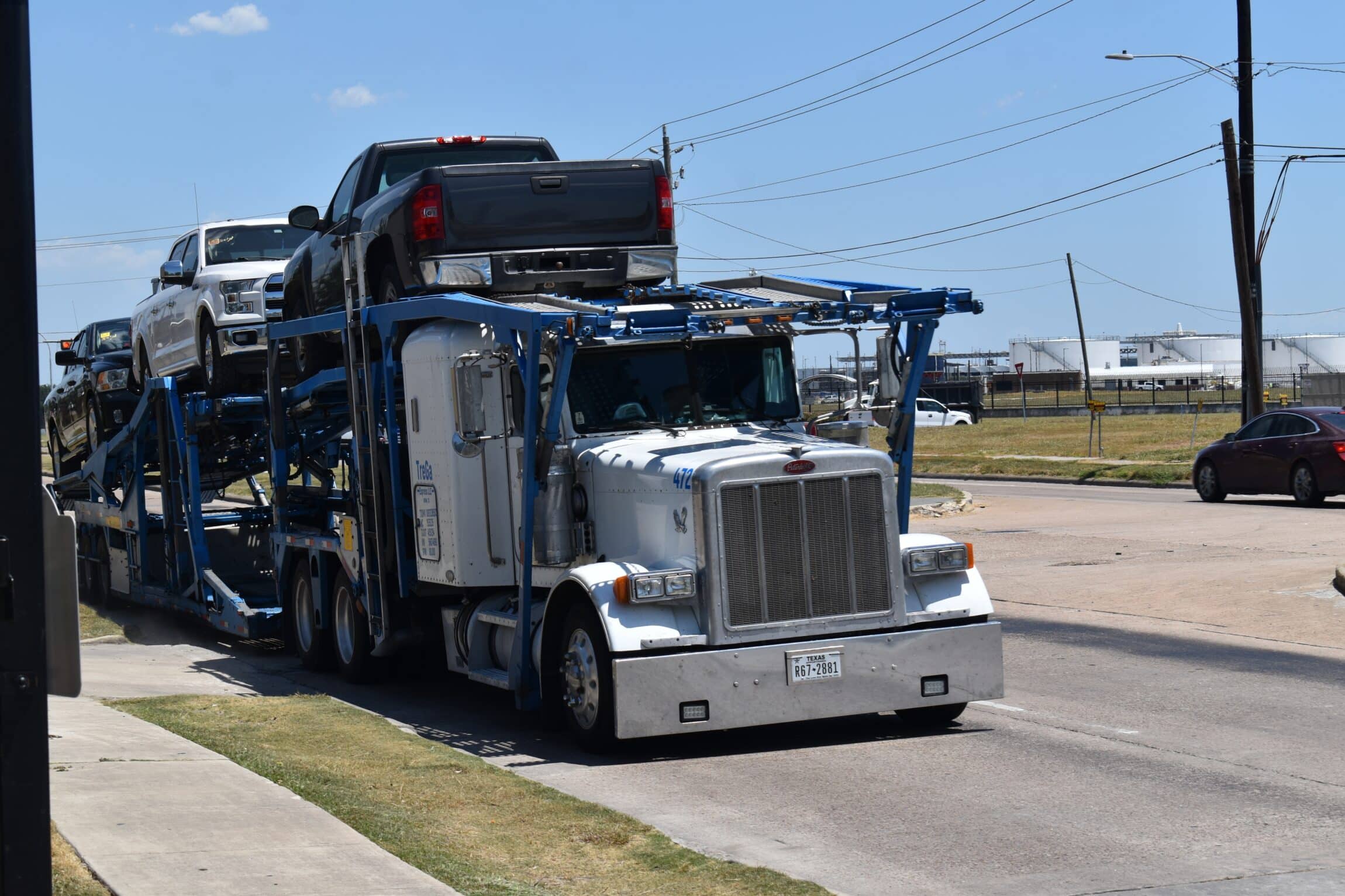
Breakdown of ELD Costs per Truck
When budgeting for electronic logbook solutions, it’s important to account for all potential expenses. The advertised monthly fee often represents just one component of the total cost. Let’s break down those potential costs.
Initial Hardware Investment
The first expense is the physical ELD device that connects to the truck’s engine. Hardware can typically cost between $100 and $500 per vehicle, depending on the manufacturer, model, and capabilities. Some providers spread hardware costs across the contract term, while others require upfront payment. Key hardware considerations include:
- Durability. Less expensive hardware often requires more frequent replacement.
- Installation requirements. Some systems can be installed quickly by drivers, while others need professional installation.
- Compatibility. Certain devices may not work with all vehicle types or model years.
- Warranty coverage. Quality providers offer at least a one-year warranty.
Monthly Service Fees
The most visible ongoing expense is the monthly subscription fee. This typically ranges from $15 to $60 per truck monthly. Monthly fees generally cover:
- Cloud storage for driving logs.
- HOS rule updates when regulations change.
- Access to online portals for log management.
- Basic technical support.
Lower-cost providers typically offer basic compliance features, while higher-end services include additional fleet management tools. Many providers offer tiered pricing with different feature sets at each level.
Additional Expenses to Consider
Beyond hardware and monthly fees, several other costs affect the total investment:
- Installation costs. While many modern ELDs are plug-and-play, some systems require professional installation for an extra cost.
- Training time. The time spent learning a new system represents a real business cost. Some providers offer free training resources, while others charge for comprehensive onboarding.
- Device replacement. When devices malfunction outside of warranty or become damaged, replacement costs can range from $100-$500 depending on the provider.
- Cellular data. Some systems require dedicated cellular connectivity, which may mean additional data expenses if not included in the monthly service fee.
- Software updates. While regulatory updates are typically included in service fees, major feature upgrades might carry additional costs with some providers.
- Termination fees. Early termination of service contracts can trigger penalties, sometimes as high as the remaining value of the contract.
Understanding these cost components helps truckers compare different elog providers and avoid unexpected expenses.
What Affects ELD Pricing?
The cost of an ELD system isn’t just about the monthly fee. Factors like features, contract terms, provider reliability, and customer support all play a role. Knowing what you’re paying for helps truckers and fleet owners make smart choices.
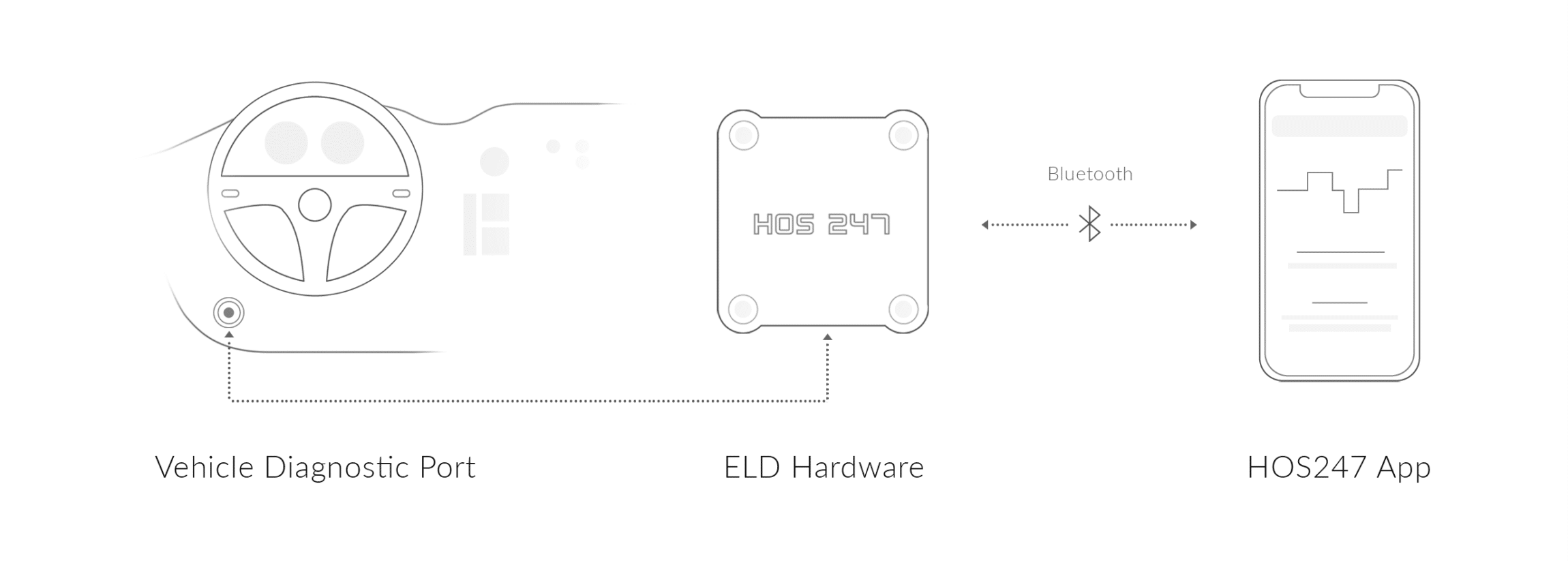
Features That Impact Price
Basic electronic logbooks focus on compliance, but premium systems offer tools that improve efficiency and can save money over time. Features that can increase pricing include:
- GPS tracking. Allows dispatchers to plan efficient routes and provide real-time updates to customers.
- IFTA reporting. Automates fuel tax reporting, saving time on paperwork.
- Driver safety monitoring. Tracks speeding, harsh braking, and idling to help improve safety and fuel efficiency.
- Vehicle diagnostics. Identifies maintenance issues early to prevent expensive repairs and breakdowns.
- Fleet management tools. Includes messaging, document uploads, and workflow automation for smoother operations.
While these features add to the cost, they can provide value to your operations. Make sure to evaluate your needs, such as minimizing compliance risks, optimizing fleet efficiency, or reducing unexpected expenses, before you make a choice.
Contract Structures
The way an ELD service is billed can also impact the overall cost. Common pricing models include:
- Long-term contracts (1-3 years). Typically offer lower monthly rates but require a commitment. Early termination fees can be expensive.
- Month-to-month plans. Provide flexibility but often come with higher monthly costs.
- Hardware-service bundles. Some providers offer discounted or “free” devices with a contract, but switching providers later may be costly.
Understanding these terms ensures you pick a plan that fits your operation’s needs.
Provider Reliability and Support
A cheap ELD isn’t a bargain if it leads to downtime or compliance issues. Key considerations include:
- Efficient customer support. Essential for quickly resolving technical issues on the road.
- Response time. Delayed support can result in violations and lost revenue.
- User reviews. Insights from other truckers help gauge real-world performance.
- FMCSA registration. Only registered ELDs meet compliance requirements, so verification is crucial.
Choosing a reputable provider can help prevent disruptions that cost time and money.
Is a Cheaper ELD Worth It?
A low price tag doesn’t always mean savings. Cheap ELDs often bring hidden costs, while quality systems pay off over time.
How Premium ELDs Save Money
Investing in a reliable ELD system can lead to cost savings through:
- Less downtime. Durable hardware and strong support help keep trucks running without interruptions.
- Fewer violations. Accurate logging reduces the risk of costly compliance fines.
- Increased efficiency. Automated reporting and digital inspections cut down on administrative work.
- Better driver experience. A user-friendly system minimizes frustration and supports driver retention.
While premium systems may cost more upfront, they often lead to greater savings over time.
The Risks of Budget ELDs
Going with the cheapest option can lead to unexpected issues, such as:
- Unreliable hardware. Frequent malfunctions or failures can cause operational disruptions.
- Limited support. Poor customer service can leave drivers stranded when problems arise.
- Hidden fees. Some providers advertise low prices but charge extra for essential features.
- Complicated interfaces. Hard-to-use systems increase the risk of log errors and compliance problems.
A low-cost ELD might seem like a good deal at first, but if it leads to downtime, fines, or frustration, the real cost can be much higher.
By considering both pricing factors and long-term benefits, truckers can choose an ELD system that supports smooth operations, legal compliance, and profitability.
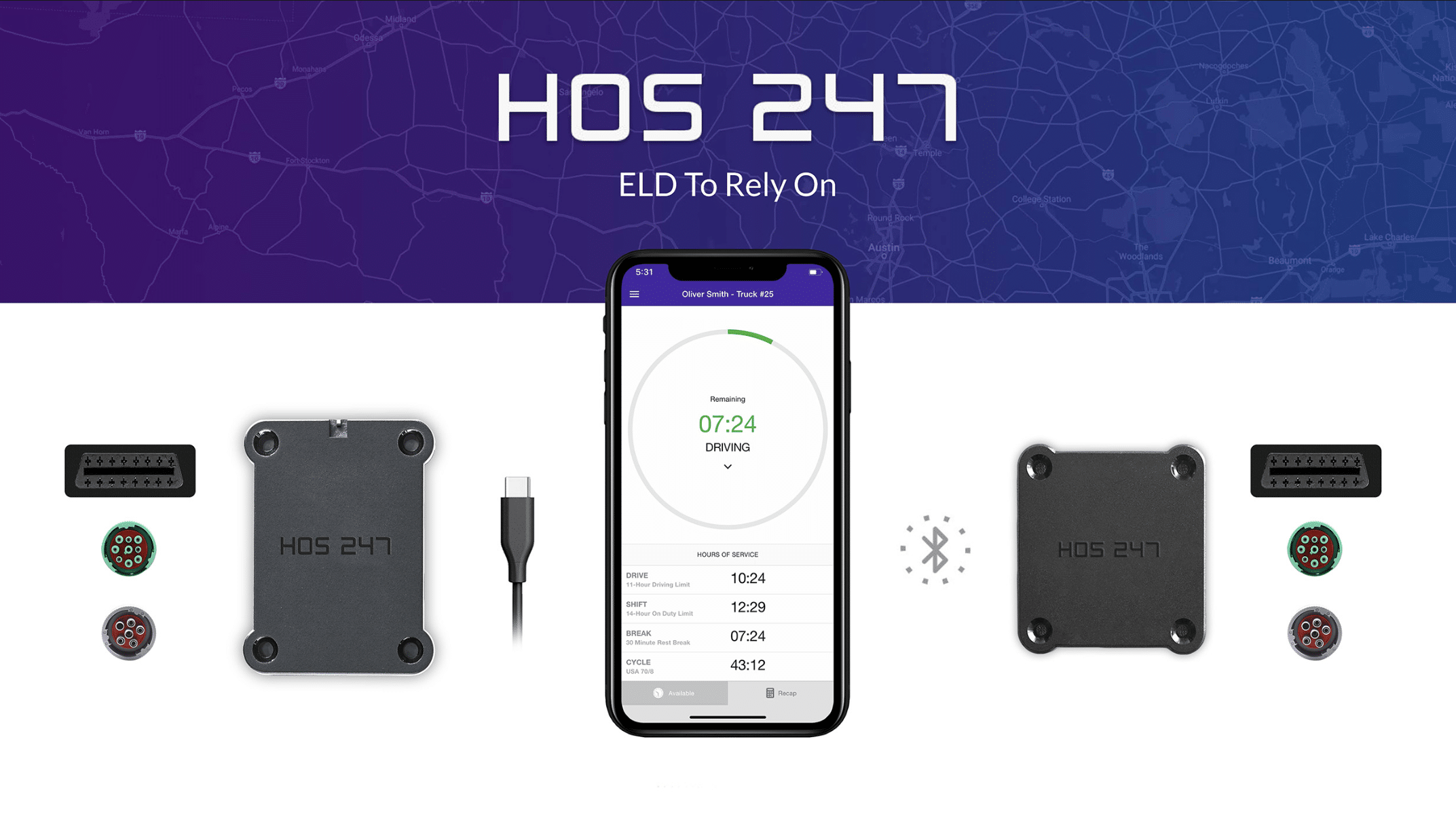
HOS247 ELD Pricing: Flexible Plans with No Hidden Fees
HOS247 offers transparent pricing with flexible plans designed to meet the needs of trucking businesses of all sizes. Customers can choose from three affordable subscription options, all of which include a free logging device and access to a user-friendly fleet management portal:
- ELD Compliance. $19/month per vehicle: Includes an electronic logbook, electronic DVIR, and fleet manager portal.
- ELD Track. $22/month per vehicle: Adds GPS fleet tracking for improved fleet visibility.
- ELD Plus. $25/month per vehicle: Includes all features plus IFTA calculations for simplified fuel tax compliance.
HOS247 offers transparent, contract-free pricing with flexible monthly or yearly subscription plans. This allows fleets to scale their service without being locked into long-term contracts or facing costly cancellation fees.
Unlike some providers that charge extra for customer support, compliance updates, or accessing past logs, HOS247 maintains a transparent pricing model. What you see is what you pay, with no unexpected charges.
With no long-term contracts, flexible monthly or yearly subscription plans, truckers can scale their service without being locked into long-term contracts or facing costly cancellation fees. HOS247 gives truckers value for their investment while staying compliant with regulations.
Benefits of HOS247 ELD Solutions
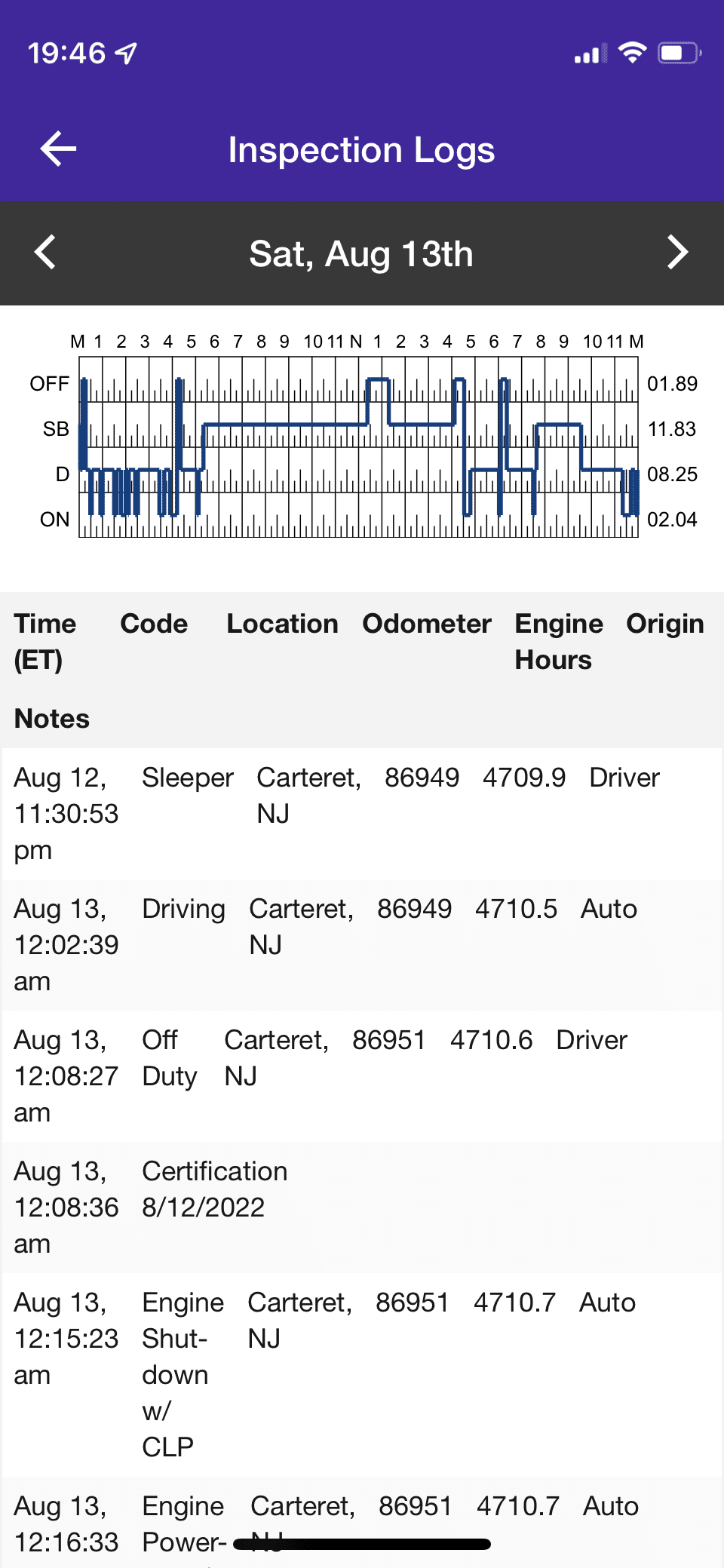
HOS247 provides a balance of affordability, reliability, and premium service, helping fleets optimize compliance and operations while keeping costs under control. Our straightforward pricing structure ensures truckers only pay for the services they need — without hidden fees or long-term commitments. Benefits of HOS247 include:
- Top-rated customer support. Our dedicated support team is available seven days a week in English, Spanish, Russian, and Polish to assist with technical issues, compliance questions, and troubleshooting. Unlike some providers, we have a callback policy—if a call is dropped, our team reaches out to you instead of making you wait in line again.
- Reliable hardware. Our ELDs are durable, easy to install, and built for the trucking environment. The plug-and-play device connects seamlessly via Bluetooth, ensuring stable performance with automatic compliance updates at no additional cost. We will replace it for free if there are any issues during the first year. Hardware comes free with yearly plans.
- Risk-free trial. We offer a hassle-free two-week return policy, allowing fleets to test the system in real-world conditions before committing. This ensures that truckers only invest in a system that truly meets their needs.
- Cost-saving fleet management features. In addition to electronic logging, HOS247 helps carriers cut costs with:
- GPS tracking. Real-time vehicle monitoring helps reduce fuel waste and optimize routes.
- IFTA mileage calculations. Automates fuel tax calculations, reducing administrative work and avoiding costly filing mistakes.
- Vehicle diagnostics & maintenance alerts. Prevents expensive repairs by keeping fleets proactive about truck health.
- Idling monitoring. Tracks excessive idling to help reduce fuel waste and lower operational costs.
HOS247 ensures that truckers get more than just compliance — they gain a tool that improves safety, efficiency, and profitability while keeping costs predictable and manageable.

Tips for Selecting the Right ELD for Your Fleet
Choosing the right ELD solution requires careful evaluation to ensure it meets the specific needs of your operation. Here are some key factors to consider:
Assess Your Needs
Every fleet has different requirements. Consider:
- Fleet size. Larger fleets may need advanced management tools, while smaller operations might focus on affordability and ease of use.
- Operational priorities. Identify must-have features like GPS tracking, fuel tax reporting, or safety monitoring.
- Budget constraints. Balance cost and functionality to find an ELD that delivers value without unnecessary expenses.
Research Providers
Not all ELD providers are the same. Take the time to:
- Read reviews. Check feedback from other truckers to gauge real-world performance and customer service quality.
- Compare pricing plans. Look for transparency in pricing and avoid contracts with hidden fees.
- Check FMCSA registration. Ensure the ELD is compliant with federal regulations to avoid potential legal issues.
Take Advantage of Trial Periods
Many ELD providers offer free trials or demo periods. Use these opportunities to:
- Test system compatibility. Make sure the ELD integrates well with your current devices and software.
- Evaluate ease of use. A user-friendly system reduces training time and prevents compliance errors.
- Assess customer support. Contact support during the trial to see how responsive and helpful they are.
Consider Long-Term Reliability
Investing in a durable and well-supported ELD ensures smooth operations over time. Look for:
- Strong technical support. Knowledgeable assistance can prevent costly downtime and compliance issues.
- Future-proof features. Select a system that can adapt to regulatory changes and evolving business needs.
- Scalability. Ensure the ELD can grow with your fleet if you plan to expand operations.
Avoiding Common Pitfalls
To make the best choice, avoid these common mistakes when selecting an ELD:
- Ignoring contract details. Hidden fees and cancellation penalties can make a seemingly affordable option costly in the long run.
- Choosing based on price alone. The cheapest ELD may lack essential features or reliable customer support.
- Skipping user feedback. Ignoring reviews from other truckers can lead to investing in a system with frequent technical issues.
- Overlooking support availability. A provider with limited customer service can leave you stranded during critical moments.
By following these steps, truckers and fleet managers can select an ELD solution that aligns with their business goals, enhances efficiency, and ensures long-term compliance.
Common Myths About ELD Pricing
There are many misconceptions about ELD pricing that can lead to costly mistakes. Here are some common myths and the reality behind them:
“All FMCSA-approved ELDs are the same.”
FMCSA approval only means an ELD meets basic compliance standards — it doesn’t guarantee quality, reliability, or ease of use.
“A free electronic logbook saves money.”
Many “free” ELDs come with hidden fees, long-term contracts, and expensive add-ons that make them more costly over time.
“I don’t need an expensive ELD since I’m always compliant.”
Even compliant drivers can face downtime and lost revenue if their elog system has unreliable hardware or poor customer support.
“The cheapest ELD is the best choice.”
A low-cost ELD with limited features and poor support can end up costing more in fines, delays, and frustration.
“Electronic logbooks with more features are always more expensive.”
Some providers offer comprehensive features at competitive rates, while others charge extra for basic functions.
Understanding these myths helps fleet owners and drivers make informed decisions about their ELD investment.

Conclusion
Choosing the right electronic logbook means looking at both upfront costs and long-term value. Better systems often save you money over time through improved reliability, responsive support, and features that make your job easier. While quality ELDs may cost more initially, they typically reduce expenses by preventing downtime, avoiding violations, and simplifying paperwork.
When evaluating your options, take time to consider what your specific operation needs, read reviews from other drivers, and use trial periods to test actual performance. Avoid common mistakes like focusing only on price, missing contract details, or overlooking customer support quality. Remember that a cheap logbook often becomes expensive when it causes problems on the road.
Think of your ELD cost per truck as a business investment rather than just a compliance requirement. The right system does more than satisfy regulations — it becomes a useful tool that helps your operation run smoother and more profitably. By making an informed choice, you can find a solution that works for your business instead of against it, keeping your costs predictable and manageable for the long haul.

As an expert in B2B and B2C sales, I’ve dedicated myself to perfecting sales processes and client retention strategies in the logistics and trucking industry. I have significantly contributed to the expansion of the ELD service, catering to retail and wholesale clients in need of HOS247 ELD solutions. My unwavering commitment to implementing state-of-the-art sales techniques and technologies ensures the continuous growth and success of businesses I work with.












For American trucking companies, managing a fleet of vehicles is more challenging than ever. It’s not just about keeping trucks on the road anymore. Today, it’s about using the right mix of vehicles, drivers, technology, and information to get the
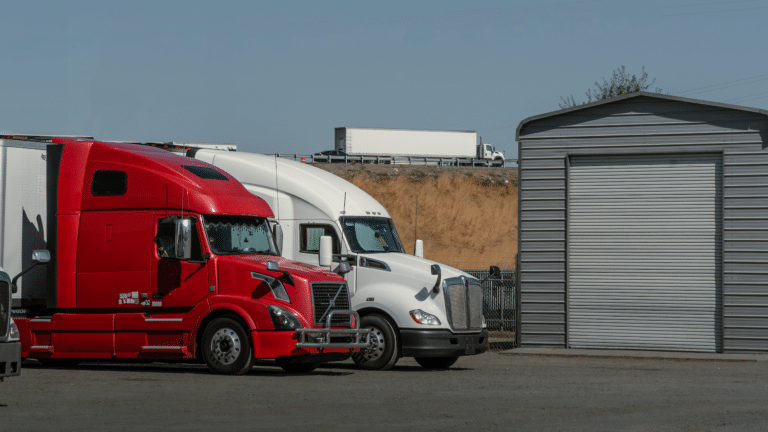
If you’re reading this, you’re likely experiencing frustration with your current ELD system. Perhaps you’re dealing with frequent connectivity failures that complicate roadside inspections. You might be struggling with an overly complex interface that wastes valuable time during your workday.

ELDs HOS Logbook for American Truckers The federal mandate for the use of electronic logging devices (ELDs) helps keep drivers compliant with hours of service (HOS) limits. Driver fatigue has proven to cause accidents and losses – human, material, and